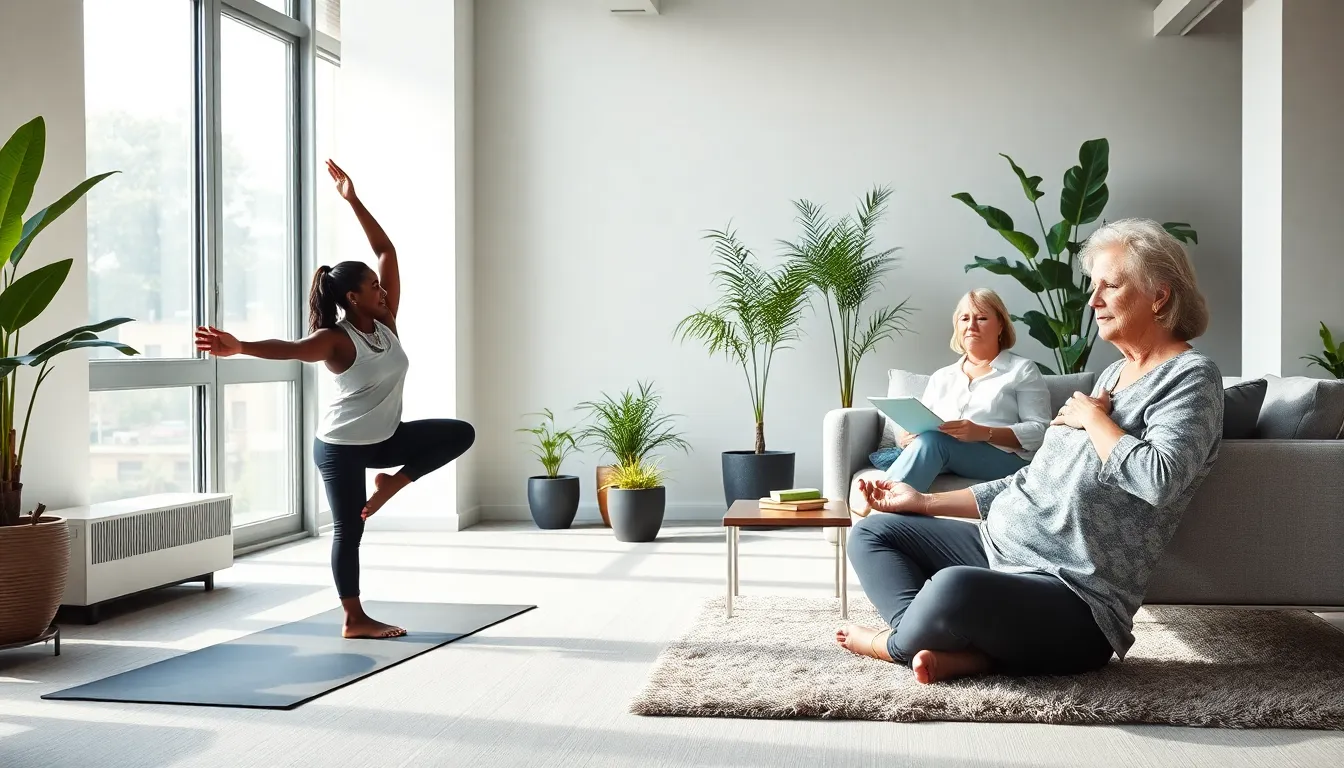Imagine this: you’re at your desk, eyelids drooping like a pair of old curtains. You haven’t had a full night’s sleep in what feels like a century, but hey, you took a thirty-minute break and binge-watched cat videos online. You wonder, is that just as good as actually sleeping?
Well, you’re not alone. Many people ponder the fine line between rest and sleep, often questioning which one is more beneficial. Spoiler alert: both have their perks, but they serve different purposes. In this text, we’ll dive deep into the intriguing world of rest and sleep, deciphering their roles like sleep detectives on a mission to uncover the truth. Buckle up, it’s going to be a relaxed exploration that could change how you view your bedtime.
Table of Contents
ToggleUnderstanding Sleep and Rest

The Importance of Quality Sleep
Sleep is like a luxury spa for the brain and body, providing essential restoration after a long day. It helps in memory consolidation, emotional regulation, and cellular repair, functioning as the foundation of good health. Notably, individuals need varying amounts of sleep, typically ranging from seven to nine hours for adults. But, as any sleep-deprived parent would tell you, quality often trumps quantity. Deep, uninterrupted sleep stages are vital for feeling revitalized.
The Role of Rest in Overall Health
On the other hand, rest is like taking a leisurely stroll in a serene garden, allowing the mind to unwind while keeping the body relatively active. Rest is not merely the absence of sleep: it’s a state of mind that can recharge one’s mental batteries. Techniques such as meditation, light stretching, or even indulging in hobbies can foster restorative breaks conducive to mental clarity and focus. Although rest doesn’t fully replace sleep, it certainly offers several benefits, especially when life gets hectic.
Comparing the Benefits of Sleep and Rest
Physical Health Benefits
When it comes to physical health, sleep undoubtedly reigns supreme. Quality rest can help regulate hormones, bolster the immune system, and reduce the risk of chronic conditions like obesity and diabetes. In contrast, while rest provides a temporary boost in energy, it doesn’t offer the same reparative benefits that a full night’s sleep delivers. Think of sleep as the essential maintenance your body craves, whereas rest is merely topping off the tank.
Mental Health Benefits
On the mental health front, both sleep and rest play crucial roles. Sleep is key to emotional regulation and cognitive functions. A lack of it can lead to irritability and impaired decision-making. Meanwhile, rest can help alleviate stress and prevent burnout, functioning as a vital tool for optimal mental wellness. Engaging in mindful activities during rest periods, such as meditation or reading, can further enhance mental clarity.
When Rest Can Substitute Sleep
Techniques for Effective Rest
In some situations, especially during busy days or after sleepless nights, rest can help bridge the gap when sleep isn’t an option. Techniques like power napping, practicing mindfulness, or even taking brisk walks outside can rejuvenate your mind and body without the full commitment of sleep. Power naps, lasting just 20 minutes, can significantly boost alertness and performance, acting as a quick reset button without delving into deep sleep stages.
Limitations of Relying Solely on Rest
Setting Priorities for Sleep and Rest
While rest acts as a valuable ally, relying solely on it can be detrimental. Chronic sleep deprivation can lead to serious ramifications, including decreased immunity, poor concentration, and even long-term health issues. Striking a balance between sleep and rest is crucial. Establishing a consistent sleep schedule while incorporating effective rest techniques can lead to enhanced overall well-being. Think of it like a balanced diet, both sleep and rest contribute to a healthier life.




